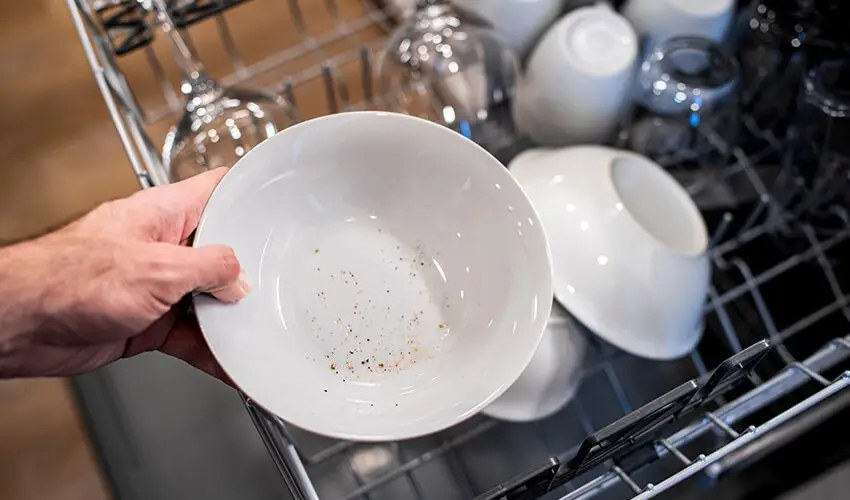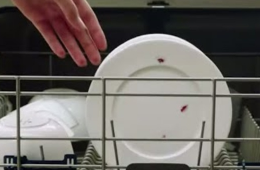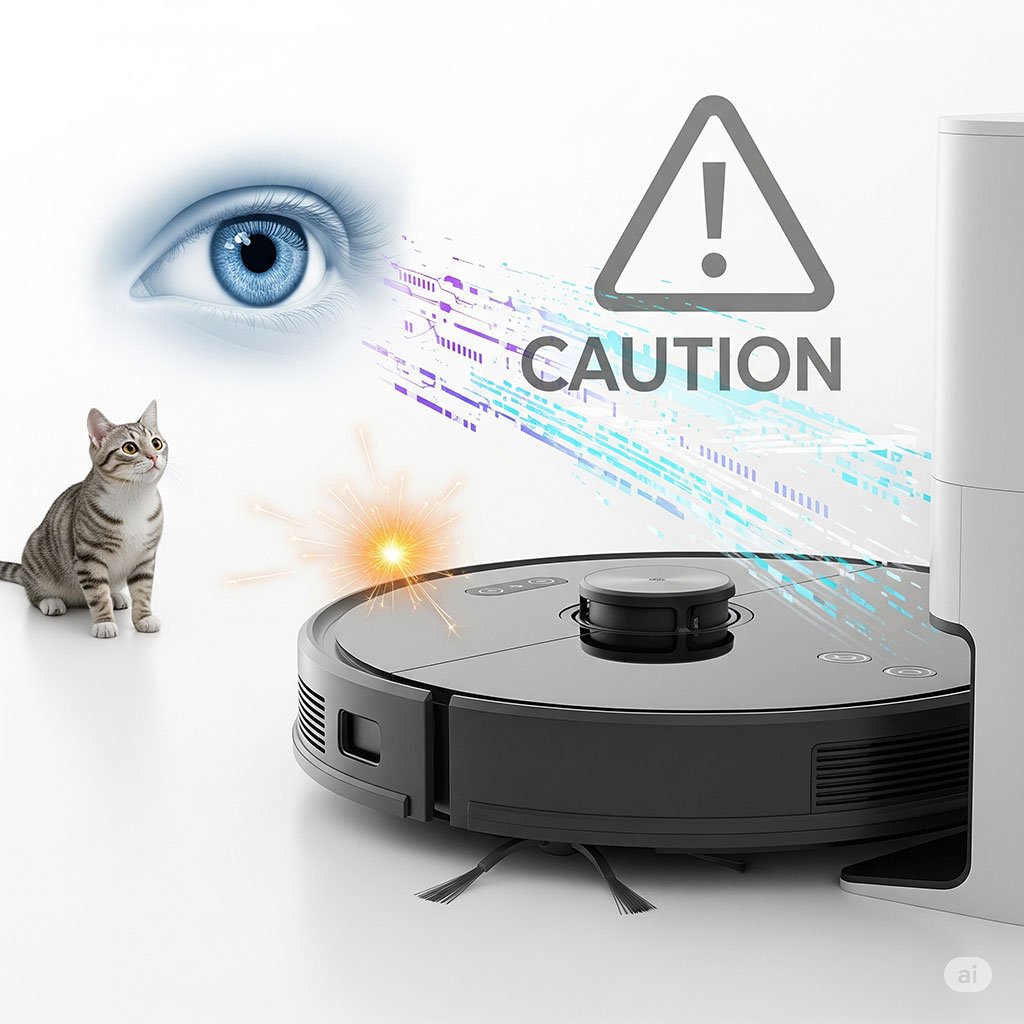Dishwashers may not clean effectively due to clogged filters or aging components. Maintenance neglect can also lead to decreased performance.
Dishwashers have become a staple in many households, prized for their convenience and efficiency. Yet, there comes a time when their performance may falter, leading users to wonder why their once-reliable appliance no longer leaves dishes sparkling clean. Common issues include the accumulation of food particles in hard-to-reach places, blockages in the spray arms, or the use of ineffective detergent.
It’s essential to regularly check these components and ensure they’re in working order to maintain the machine’s efficacy. Proper loading techniques and routine cleaning can greatly impact the dishwasher’s ability to clean thoroughly. Old or malfunctioning dishwashers may also struggle due to worn-out parts that need replacing or repair. With appropriate care and attention, most cleaning issues can be resolved, restoring the dishwasher’s functionality.

Credit: www.mrappliance.com
Table of Contents
The Dishwasher Dilemma
Your once sparkling dishes now look lackluster. The machine that was a kitchen hero seems to falter. Dishwashers are subject to many issues that affect their cleaning power. This article shines a light on why modern dishwashers struggle, leaving homeowners puzzled and frustrated.
Common Complaints In Modern Dishwashing
- Spotty Glasses: Dishes come out with streaks and spots.
- Leftover Residue: Food particles cling to plates and utensils.
- Fading Efficiency: Machines take longer to clean than they used to.
Rising Concerns: Is Efficiency Compromised?
New dishwashers boast energy-saving features. Yet, this can mean weaker water jets and longer cycles.
Older Dishwashers | Modern Dishwashers |
|---|---|
Strong jets for quick, thorough cleaning. | Eco-friendly but less forceful water jets. |
Short cycles that use more water and energy. | Longer cycles designed to conserve resources. |
In pursuit of efficiency, dishwashers have traded swiftness for sustainability. Sometimes, that trade-off raises issues in cleaning performance.

Credit: www.reddit.com
Evolution Of Dishwashing Technology
The Evolution of Dishwashing Technology has revolutionized how we clean our dishes. What used to be a tedious chore is now a task that can be done at the push of a button. Let’s delve into the journey from manual scrubbing to automated dishwashers and understand why some people might feel their dishwasher doesn’t clean as it used to.
From Manual Scrub To Automatic Wash
Dish cleaning began as a hands-on task. This evolved into the efficient dishwashers we use today. Below are key milestones:
- Hand-washing Era: Scrubbing dishes with sponges and soap.
- The Invention of Dishwashers: Machines took over with basic wash and rinse cycles.
- Improved Design: More user-friendly interfaces and advanced cycles.
Technological Advances And Their Shortcomings
With innovation, there came challenges. Let’s look at the pros and cons.
Advancement | Benefits | Shortcomings |
|---|---|---|
Enhanced Cycles | Better cleaning with varied options. | Complexity can lead to confusion and misuse. |
Water-Efficiency | Saves water for eco-conscious users. | Less water may mean less thorough rinsing. |
Smart Features | Integration with smart homes for convenience. | Reliability issues can arise with technology glitches. |
Each technological step forward has its trade-offs. While features add convenience, they may also introduce new reasons for why dishes aren’t cleaned as expected.
Water Conservation And Environmental Regulations
Modern dishwashers save more water than ever before. New laws make sure they are friendly to the planet. But this might mean they do not clean as well as old machines. Let’s explore why.
Impact Of Eco-friendly Policies On Performance
Dishwashers now have to follow strict rules. These rules help keep our earth clean. They use less water and energy. Still, these changes can make dishwashers work slower or not clean dishes quite as well.
- Less water used per cycle
- Energy usage is cut down
- Longer wash cycles
- Cleaning power might drop
Finding The Balance: Efficiency Vs. Sustainability
To care for our planet, we need to find the middle ground. Dishwashers should clean well but not waste resources. Manufacturers work hard to make this happen. They create machines that are both strong in cleaning and kind to nature.
Cleanliness | Water Usage | Energy Usage |
|---|---|---|
Must remove all food bits | Only a little water per wash | Should use less electricity |
Brands are always testing. They want to make dishwashers that meet all these needs. Some high-tech machines have features like:
- Smart sensors for dirt levels
- Superior spray arms
- Eco-friendly wash cycles
The goal is clean dishes using less water and power.
Detergent Formulation Changes
Detergent formulation changes have become a pivotal issue in why dishwashers might not be cleaning as effectively as they used to. Innovations and environmental regulations have considerably altered the ingredients in dishwasher detergents. Let’s delve into how these changes affect cleaning performance.
Phosphate Bans And Cleaning Efficacy
Historically, phosphates played a key role in dishwasher detergents. They were excellent in breaking down food debris and preventing spots on dishes. However, due to environmental concerns, phosphate bans have been implemented, leading to significant changes in detergent formulas. Without phosphates, some users notice a decline in cleaning efficacy:
- Difficulty removing stuck-on food
- Increase in dishes with film or residue
- More instances of spotty glassware
The Search For Powerful, Eco-safe Alternatives
Manufacturers face the challenge of maintaining high cleaning standards while abiding by environmental regulations. The search for powerful, eco-safe alternatives is ongoing. Companies now use various ingredients to try and match the cleaning power that phosphates once provided:
Ingredient | Role |
|---|---|
Enzymes | Break down food particles |
Polycarboxylates | Water softening to prevent spots |
Oxygen-based bleaching agents | Remove stains and brighten dishes |
User Habits And Misconceptions
Many dishwashers fail to clean properly. User habits play a big role in this. Let’s debunk some common misconceptions and improve your dishwasher’s performance!
Pre-rinsing Practices That Reduce Effectiveness
Do you pre-rinse dishes before loading them? This habit might be doing more harm than good. Modern dishwashers are designed to handle food residue. When you rinse dishes first, the dishwasher sensors may think they’re cleaner than they are. This can lead to shorter cycles and less effective washing.Quick Tips:
- Scrape, don’t rinse: Remove large food pieces but skip the rinse.
- Trust your machine: Allow the dishwasher to do its job.
- Save water: Avoid pre-rinsing to conserve water.
Loading Techniques And Dishwasher Performance
How you load the dishwasher impacts its cleaning abilities. Overloading or improper placement of dishes can block water jets, leading to unclean dishes. Each rack is designed for specific items. Ensure that water and detergent can reach every surface for the best clean.
Item | Location | Tip |
|---|---|---|
Plates | Bottom Rack | Align in the same direction |
Cups and Bowls | Top Rack | Angle down for better cleaning |
Utensils | Utensil Basket | Mix and space out for effective washing |
Additional Tips:
- Avoid nesting: Ensure spoons and forks are not nested together.
- Check spinning arms: Ensure nothing obstructs the sprayer arms.
- Use features: Maximize dishwasher features for your benefit.

Credit: cascadeclean.com
Maintenance And Machine Care
Dishwashers streamline kitchen clean-up, but they need proper maintenance to perform their best. Neglecting machine care can lead to poor cleaning results.
The Importance Of Regular Cleaning
A clean dishwasher equals clean dishes. Regular cleaning prevents food particles and grease from clogging the spray arms. It also stops unpleasant odors and bacteria growth.
- Monthly cleaning of filters and spray arms is vital.
- Use special dishwasher cleaners to remove limescale and grease.
- Wipe door seals and accessible areas after each use.
Common Maintenance Mistakes
Mistakes in maintenance can impede dishwasher performance. Here are key errors to avoid:
Error | Impact |
|---|---|
Overloading | Obstructs water flow; Dishes don’t clean. |
Poor Detergent Choice | Leaves residue; Affects cleaning power. |
Ignoring Filters | Causes clogs; Reduces efficiency. |
Also, remember to not block the detergent dispenser, and pick the right cycle for the load.
The Role Of Water Quality
Ever wondered why your dishwasher isn’t cleaning as it used to? It’s not just about the detergent or the machine itself; the water flowing into your dishwasher plays a huge role. Water quality can make or break the effectiveness of your unit, affecting both performance and lifespan. Let’s deep-dive into how water impacts cleaning, and explore some fixes to ensure your dishes sparkle again.
Hard Water Challenges
Hard water is filled with minerals like calcium and magnesium. While these minerals are safe for consumption, they present a challenge for dishwashers. Here’s how:
- Minerals create a film on dishes, leaving them cloudy.
- Buildup can clog the dishwasher’s components.
- Over time, hard water reduces the efficiency of the machine.
These challenges demand tailored solutions to improve your dishwasher’s cleaning power.
Solutions To Water-related Cleaning Issues
Here are proven solutions to combat water-related issues in your dishwasher:
- Water Softeners: Installing a whole-house water softener removes minerals, providing your dishwasher with soft water.
- Rinse Aids: Use rinse aids designed to combat hard water effects during the final rinse cycle.
- Cleanup: Regularly clean your dishwasher’s filters and spray arms to prevent clogs.
Implementing these steps can significantly enhance your dishwasher’s performance. Start with testing your water hardness, then pick the solutions that best fit your needs.
Manufacturers’ Responses And Future Trends
Manufacturers’ Responses and Future Trends have become pivotal in the evolution of dishwashers. Homeowners express frustration over machines failing to clean effectively. Brands acknowledge the concerns and assert a commitment to innovation.
Innovations Addressing Cleaning Concerns
Manufacturers are reinventing dishwasher technology to tackle cleaning inefficiencies:
- Advanced Sensor Technology ensures optimal water usage and temperature.
- Improved Jet Patterns target dishes from multiple angles for thorough cleaning.
- Enhanced Filtration Systems remove food particles more effectively.
- Eco-friendly Detergent Pods designed for specific machines amplify cleaning power.
What’s Next For The Dishwashing Industry?
The industry is set for a transformation with smarter, more efficient dishwashers:
Feature | Benefit |
|---|---|
Wi-Fi Connectivity | Remote diagnostics and control for users |
AI-Enhanced Cycles | Customized cleaning based on load content |
Water Reuse Technology | Conservation of water as an eco-friendly step |
Brands are focusing on sustainability and user convenience to shape the future of dishwashing.
Frequently Asked Questions
Why Are My Dishes Still Dirty After The Dishwasher?
Dishes remain dirty after a dishwasher cycle due to overloaded racks, blocked spray arms, or using the wrong detergent. Ensure proper loading, clear blockages, and select a suitable cleaning agent. Regular maintenance also helps prevent this issue.
Why Is There Food Residue On My Dishes After Dishwasher?
Food residue on dishes after a dishwasher cycle can occur due to overloaded racks, blocked spray arms, or using the wrong detergent. Regular maintenance and proper loading ensure cleaner results.
Why Doesn’t Dishwasher Clean?
Dishwashers may not clean properly due to clogged spray arms, overloaded racks, or using incorrect detergents. Hard water buildup and filter blockages can also impact cleaning effectiveness. Regular maintenance ensures optimal performance.
How Do I Get My Dishwasher To Clean Better?
For improved dishwasher performance, ensure to regularly clean the filter, use the recommended detergent amount, and arrange dishes with space between them for better water circulation. Regular maintenance and running hot water before starting the cycle can also enhance cleaning effectiveness.
Bottom Line
Wrapping up, dishwashers losing their effectiveness often boils down to easy fixes. Regular maintenance, proper loading, and quality detergent make a difference. Seek professional advice if problems persist. Embrace these tips for sparkling dishes every cycle. Keep your trusty appliance doing what it does best—giving you spotless results.



![Do Robot Vacuums Spy on You? [Real Privacy Concerns!]](https://shavyclean.com/wp-content/uploads/2025/07/do-robot-vacuums-spy-on-you.jpg)